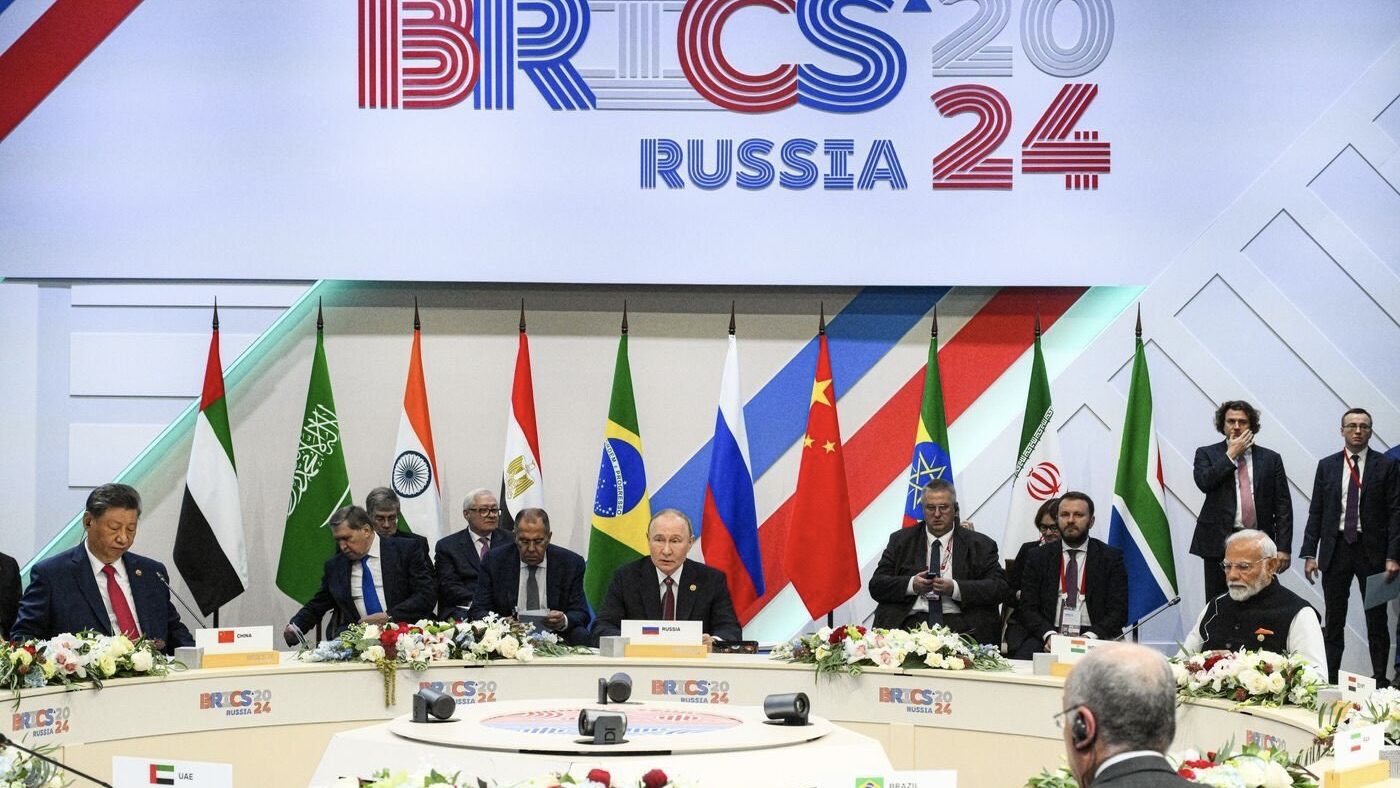This is the first summit since the accession of five new members, Egypt, Ethiopia, Iran, Saudi Arabia, and the UAE earlier this year. It is expected that yet another set of countries may join the grouping this year.
During his speech at the ongoing BRICS summit on Wednesday, October 23, Russian President Vladimir Putin expressed his desire to see the grouping play a greater role in global affairs and in resolving regional and international challenges.
The 16th summit of the 10-member grouping is being held in Russia’s fifth largest city of Kazan from October 22 to October 24. Apart from the full members, over 30 other countries are participating in the meeting which has the theme of “strengthening multilateralism for equitable global development and security”.
During Wednesday’s proceedings, the BRICS countries passed a resolution condemning Israel and calling for an immediate ceasefire in Gaza. “We stress the urgent need for an immediate comprehensive and permanent ceasefire in the Gaza Strip, the immediate and unconditional release of all hostages and detainees from both sides who are being held illegally, and the unimpeded, sustained and large-scale flow of humanitarian assistance to the Gaza Strip, as well as an end to all aggressive actions,” reads the Kazan declaration.
On Tuesday, most of the member countries held bilateral meetings. Putin held meetings with President Xi Jinping of China, Prime Minister Narendra Modi from India, and his South African counterpart Cyril Ramaphosa. More bilateral talks are scheduled for Wednesday and Thursday.
Founded in 2006, BRICS has expanded from its original four members (Brazil, Russia, India, and China) to 10 members now. South Africa joined in 2010 and on January 1, 2024, five new members, Egypt, Ethiopia, Iran, Saudi Arabia, and the United Arab Emirates (UAE) joined as full members.
Today, the countries in the grouping together represent 46% of the world’s total population and around 36% of global GDP on the basis of PPP.
Apart from the heads of its member states, leaders from several countries, including Turkish President Recep Tayyip Erdogan, Vietnamese Prime Minister Pham Minh Chinh, Venezuelan President Nicólas Maduro, and leader of the Palestinian Authority Mahmoud Abbas are also participating. Cuban President Miguel Díaz-Canel could not join the meeting in person due to the situation in Cuba in the wake of both the national grid failure and Tropical Storm Oscar. Cuba was represented in the meeting by its Foreign Minister Bruno Rodríguez.
For his part, Brazilian President Luiz Inácio Lula Da Silva could not participate in the meeting physically due to recent health complications. However, he addressed the meeting through video conference on Wednesday.
Like several other countries participating in the summit, both Russia and Iran have been subjected to unilateral sanctions by the west. China and other BRICS members and some of the non-member countries such as Cuba and Venezuela have been campaigning against such unilateral sanctions, calling them illegal and detrimental to nations’ right to development.
On Tuesday, China raised the issue in the UN again, claiming that unilateral coercive measures “violate the principle of sovereign equality and cooperation, intervene in other countries’ internal affairs and disregard the purposes of the UN charter and international law,” Xinhua reported.
In light of this, the BRICS nations have been pushing for greater financial independence from the Western financial systems and the dominance of the dollar. The New Development Bank, formerly the BRICS Bank, was founded in 2015 in order to advance these efforts of financial independence and serve as a “multilateral development bank aimed at mobilizing resources for infrastructure and sustainable development projects in BRICS and other EMDC.” It is currently headed by former Brazilian President Dilma Rousseff.


